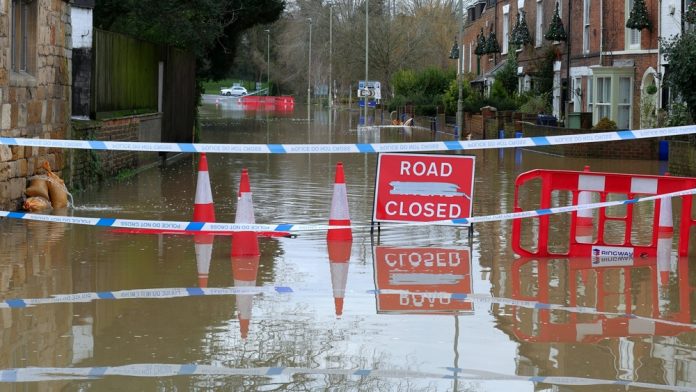Researchers across the UK will use the latest tech and major data banks to provide better flood and drought warnings.
Science and Technology Secretary Peter Kyle has announced that a new project for scientists using the latest tech and real-time data will make it easier to predict where future flooding and droughts will strike in the UK.
It will help key bodies, such as local authorities and the Environment Agency, stem the worst of extreme weather’s impact on communities.
This will save lives, homes, and businesses and help to cut the devastating cost of such events to the UK economy, estimated at £740m a year.
The Floods and Droughts Research Infrastructure will be the first UK-wide network focused on understanding the impact of extreme weather conditions across the country, pinpointing where incidents are likely to occur and planning to limit their impact.
Making flood and drought warnings more accurate
The complexity of Earth’s climate makes rolling out flood and drought warnings a major challenge, and climate change only further complicates the situation.
Researchers will use the latest technologies, including sensors and real-time computer monitoring, plus a huge bank of data, including river profiles, and near real-time monitoring of information on atmospherics, ground saturation, water movement, abstraction, and storage.
Taken together, this will form a clearer impression of where and when extreme weather will strike.
Science and Technology Secretary Peter Kyle said: “Flooding and droughts can devastate UK communities, from leaving people stranded to destroying homes, gardens, roads and businesses, and even claiming lives.
“This project will help drive progress, with dedicated teams using the most advanced tech to crunch data gathered from our rivers and paint a clear picture of its likely impact – using the power of science and tech to keep the public safe.”
Making the UK a leading force in disaster response
Floods wreak havoc on communities by destroying homes, public infrastructure, and livelihoods like farming, which in turn costs consumers.
Similarly, droughts have a major impact on the water supply and the UK ecosystem, harming wildlife and their natural habitats, which rely on regular rainfall.
Researchers will be based at the UK Centre for Ecology & Hydrology’s offices throughout Great Britain, with further input from researchers at the British Geological Survey, University of Bristol, and Imperial College London.
Findings from the project will be shared with key bodies like the Environment Agency to steer the UK’s response to extreme weather. It will also act as a hub for researchers to pursue new innovations, with discoveries shared worldwide, and mark the UK as a leader in the field.
Floods Minister Emma Hardy concluded: “In the case of extreme flooding and drought, preparation and prediction are everything.
“Our new institute will bring together a team of world-leading researchers and the latest technology to ensure our communities, businesses and farms are protected from these devastating events.”





